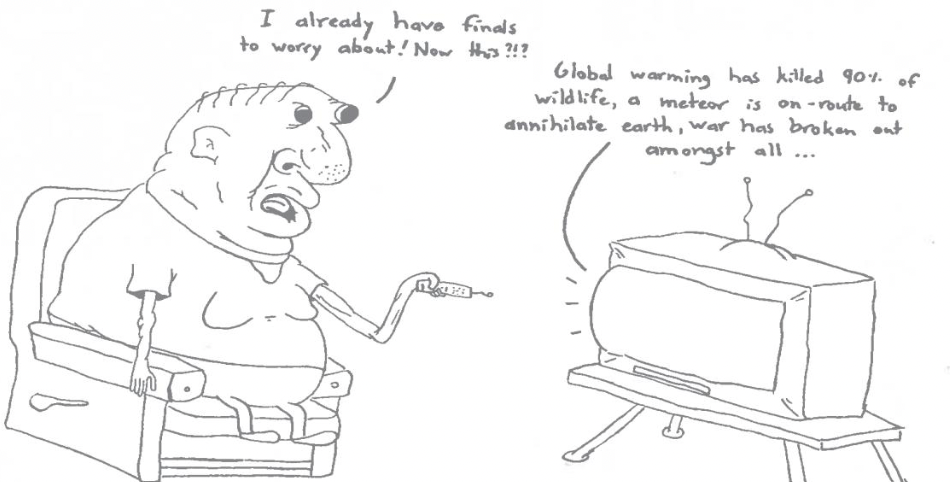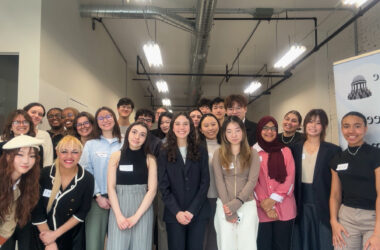It is a truth universally acknowledged that all great stories of the world require adversity. In critical times of civil unrest and political despair, it can feel like an act of hard faith in the face of a cruel joke to believe things might truly improve. We get so invested in loving a world that seems to not love us back that we grow resentful and tired. The will to change is a lost art—as students, we feel too small for our ambitions and too restless for our own good.
Sophia Mugford, U2 Science, spoke about despair as a catalyst for change in an interview with The Tribune.
“Grief is an expression of compassion,” she said. “It’s the mirrored other side of the coin of love to be hurt and lost at times. Without these feelings, you don’t get the anger you need to confront the unjust feelings of unfairness and sadness needed to move forward and enact change.”
Addressing transgender rights activism particularly, Mugford highlighted that giving in to despair means giving up on living authentically.
“The greatest form of protest is to live,” Mugford said. “Being open to the truth of who you are and commanding space is a life-saving act for people like you.”
Fear, too, can be a powerful tool in mobilizing communities, acting as a wake-up call to action.
Coming from a science background where politics are often less front-and-center in the classroom, Apollo Goderich, U3 Science, pointed out that activism and solidarity has the power to pull students out of the daily grind and into engaged communities.
“You have to keep focusing on schoolwork like nothing is happening. It’s isolating and reminds you of the city’s apathy [….] When we talk with each other, we cultivate understanding—we share our anger and suffering,” Goderich stated.
The weight of the ecological crisis has driven many members of Gen Z to question whether bringing children into this world is ethical, given our grim environmental outlook. However, Rebecca Solnit, an American writer, is quick to rebut that in her experience, many activists who face the realities of the climate crisis daily are people with family and children—for whom they hope to secure a better, liveable future. This defeatist surrender reveals Gen Z’s uniquely nihilistic doubts for a prosperous future generation—it’s not uncommon to hear friends and siblings say, “We don’t even want another generation.”
Setareh Setayesh, U3 Science, however, delineates between optimism and actionable hope.
“You can’t just have blind hope and optimism that everything will be okay—it’s satiating but it’s not fuel,” Setayesh told The Tribune. “People need to recognize the urgency, we don’t need to be comfortable and optimistic, we need to be hopeful and opportunistic.”
Hopelessness is an emotion masked with false hope. We push things away and hope they will change, when change is an active participatory performance of will. We need to live with despair and try to understand it intimately to find ways out of it. Grief is an act of merciless, unsentimental love which spares no one. We owe it to ourselves and future generations to create a better world, working through our despair and grief to find a way forward.
Recalling her Fundamentals of Global Health class, Setayesh recalled Thunberg’s words: “Once we start to act, hope is everywhere. So instead of looking for hope, look for action. Then, and only then, hope will come.”







